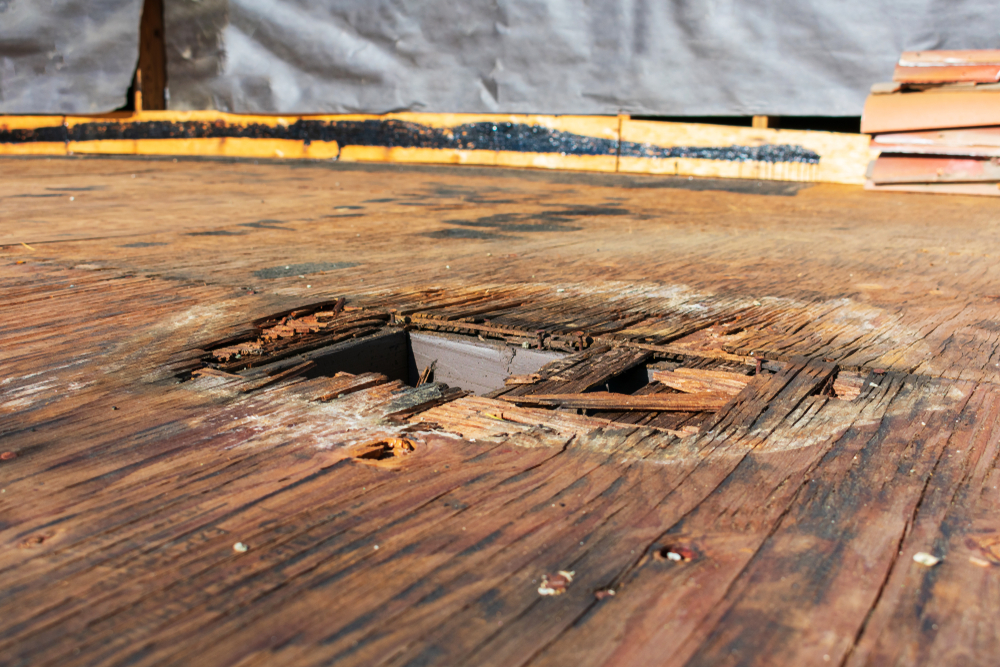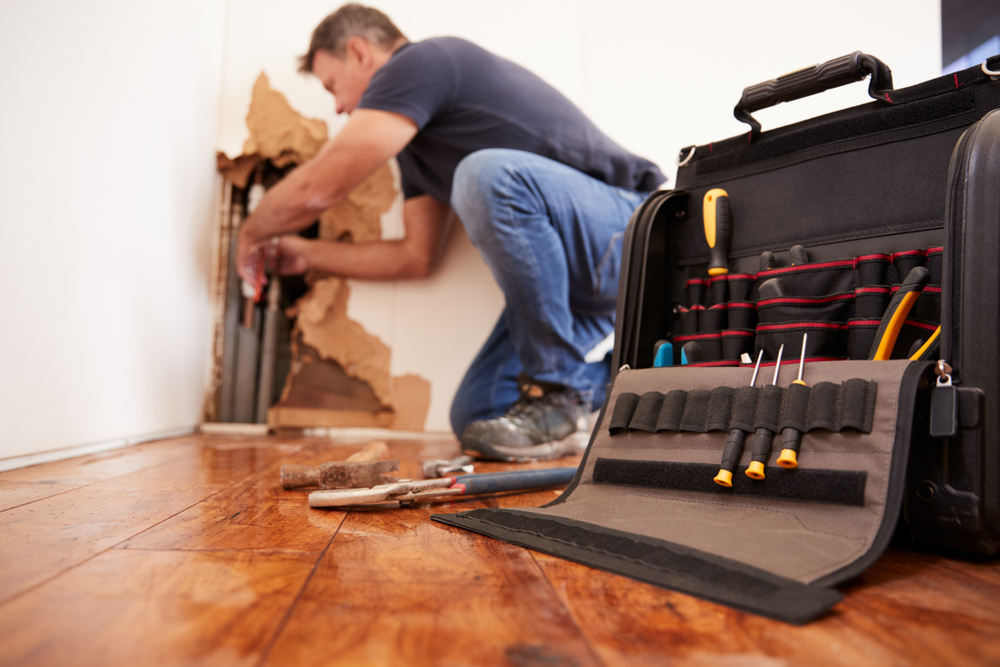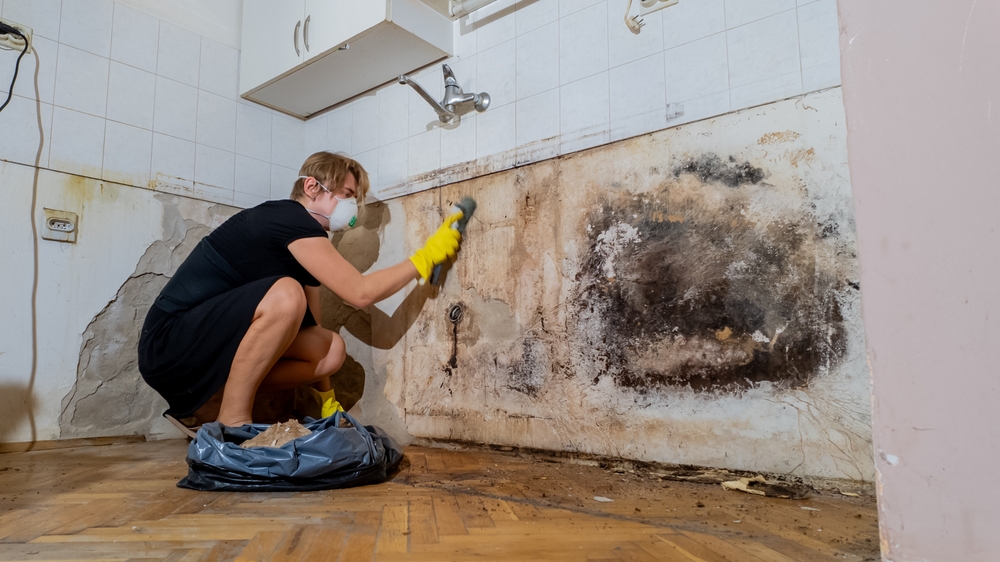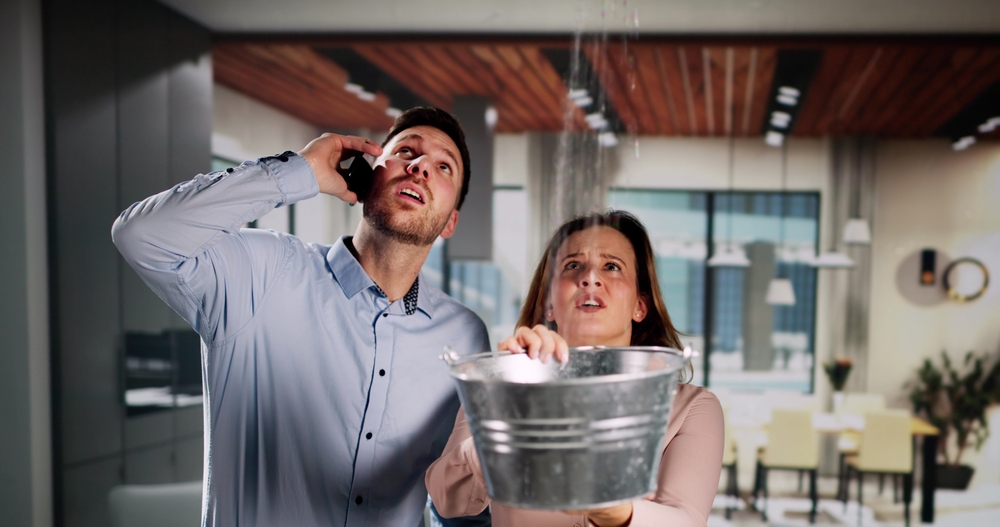Many houses include basements, which offer additional storage space, a comfortable sitting room, or maybe a home office. When it comes to water damage, nevertheless, they are also among the most susceptible sections of a house. A wet or flooded basement could cause expensive repairs, ruined items, and possibly health hazards from mildew and mold. The good news is that many times, a few preventative steps will help to prevent basement water damage. This guide will provide you useful advice on how to protect your basement from water damage and house as well as assist you identify the typical causes of basement water damage.
Common Causes of Basement Water Damage
First step in preventing basement water damage is knowing its sources. There are several ways that water could enter your basement, and recognizing these hazards will enable you to act before it’s too late.
Heavy Rainfall and Flooding
The ground around your house gets soaked when it rains heavy. Groundwater intrusion—the process by which excess water seeps through minor breaches in your basement walls or floor—is what Besides, surface water runoff—that is, water running down your land—may gather close to your foundation and raise flooding danger. The risk is much larger if your house is in a low-lying area or one prone to frequent rain.
Plumbing Issues
Another often occurring source of basement water damage is plumbing issues.
- Leaky pipes: Particularly if the leak stays undiscovered, even a minor drop over time can cause major water damage.
- Clogged drains: Blocked drains could cause water to backup and pour into your basement, flooding and property damage results.
- Sewer backups: Water and waste may flow backward into your house when the sewer system gets overloaded, therefore posing a dangerous and unpleasant scenario.
Poor Drainage
Maintaining a dry basement depends critically on proper drainage. Typical problems consist in:
- Inadequate grading: Should your property slink toward your house, water will naturally run toward your basement, raising flooding danger.
- Clogged gutters and downspouts: When gutters and downspouts are overflowing with leaves and trash, rainwater may pool close to your foundation. This can reduce the structural stability of your house with time.

Preventing Basement Water Damage
Generally speaking, prevention is better than handling water damage’s aftermath. These actions will help your basement stay free from possible water issues.
Exterior Drainage
Controlling water outside your house becomes the first line of protection against basement water damage.
- Grading your property: Grade your land such that the ground runs away from your foundation to prevent water collecting close to your house. One should aim for a slope of at least six inches over ten feet.
- Installing gutters and downspouts: Gutters transport rainwater off your roof, then downspouts guide it away from your foundation. Clear gutters often to avoid clogs.
- Extending downspouts: Using extensions can help you to shift water at least 6–10 feet away from your house. This easy action will greatly lower the water pooling risk next to your basement walls.
Interior Drainage
Interior drainage systems can help to reduce damage should water make its way inside.
- Installing a sump pump: A sump pump gathers water entering your basement and pumps it out to maintain dryness in the area. Select a model with a battery backup to be sure it runs during blackouts.
- Using a dehumidifier: Using a dehumidifier lowers indoor humidity, therefore hindering the growth of mold. In humid climates or during the wet season especially, this is crucial.
- Sealing cracks and gaps: Using waterproof sealants can help you fill any breaches in your floor or basement walls so stopping water from leaking in. Check your foundation often for fresh wear-related cracks.
Plumbing Maintenance
Planned plumbing inspections help you avoid unanticipated water damage.
- Inspect pipes regularly: Examining pipes often helps one find leaks, corrosion, or other damage indicators. Look especially at pipes near your basement walls.
- Fix leaks promptly: Fix leaks right away; untreated even a minor leak can cause major issues.
- Clear drains frequently: Make sure your drains are free of obstructions so as to prevent backups. Drain covers assist stop trash from getting into and blocking systems.
Emergency Preparedness
Water damage still occurs even with the best of care. Get ready with a strategy.
- Know how to shut off your water: Find the primary water shutdown valve in your house and show everyone how to operate it.
- Have a water damage emergency kit: For rapid response, have on hand tools including a wet/dry vacuum, buckets, towels, and cleaning supplies.
- Store valuables off the floor: Store valuables off the floor by means of shelves or waterproof containers, therefore safeguarding objects against any water damage.
Responding to Water Damage
If water does find your basement, immediate response is vital to reduce damage and stop other issues including mold development.
Immediate Actions
- Turn off water sources: If a plumbing problem generated the water, immediately turn off the water supply for your house.
- Remove excess water: Eliminate standing water as fast as you can using buckets, a wet/dry vacuum, or mops.
- Prevent mold growth: Using fans and dehumidifiers, completely dry the area; discard any water-damaged objects that cannot be repaired.
- Protect electrical systems: Until they have been professionally evaluated, avoid touching outlets or appliances in damp areas.
Professional Water Damage Restoration
Professionals are best advised to be contacted for significant water damage.
- Why hire a professional? Professionals have the instruments and knowledge to safely and successfully manage significant water damage. Additionally they can assist avoid long-term problems including structural deterioration and mold.
- What to look for in a restoration company: Look for a restoration firm that has certified personnel, good ratings, and water damage restoration experience. Make sure they present a comprehensive strategy of action together with a precise estimate.

Long-Term Basement Protection Strategies
Beyond quick repairs, think about putting long-term plans in place to guard your basement.
Waterproofing Your Basement
One further degree of defense against water damage is offered by waterproofing. Among the options are:
- Interior waterproofing: Interior waterproofing is the application of sealants or coatings to floors and walls.
- Exterior waterproofing: Adding a waterproof covering on your foundation’s outside will help. Though incredibly successful, this calls for skilled installation.
Landscaping Adjustments
Preventing water damage mostly relies on your landscaping.
- Plant water-absorbing vegetation: Near your house, some plants—such as bushes or ferns—may help absorb extra water.
- Avoid overwatering: Be careful not to overwater your garden; consider where and how often you water it to help avoid water from accumulating close to your foundation.
- Install a French drain: Install a French drain to send water away from your house, therefore lowering the basement flood danger.
Regular Inspections
Plan frequent maintenance of the foundation, drainage systems, and plumbing of your house to identify possible problems early on. Fixing little issues is far less expensive and time-consuming than addressing significant water damage.
Conclusion
Basement water damage may be expensive, disruptive, and detrimental to the structure of your house as well as the air quality. Still, the risk can be significantly lowered by knowing the typical reasons and acting early on.
Key Takeaways:
- Main sources of basement water damage are heavy rain, plumbing problems, and poor drainage.
- Strategies for prevention call for maintaining plumbing, closing foundation cracks, and enhancing both inside and outside drainage.
- If water finds your basement, quick response and expert restoration are absolutely vital.
Wait not for water damage to cause issues. Start by looking over your basement, doing required repairs, and configuring preventative measures including dehumidifiers, sump pumps, and gutters. Being proactive helps you to guard your basement and provide you piece of mind knowing your house is dry and safe.
See a professional now for an assessment and professional guidance if you are struggling with water damage or wish to avoid it. Recall that a healthy house is built on a dry basement!
Philadelphia Restoration Services
https://www.google.com/maps?cid=3399342399556699153
+1 267 668 0013
https://philadelphiarestorationservices.com/


